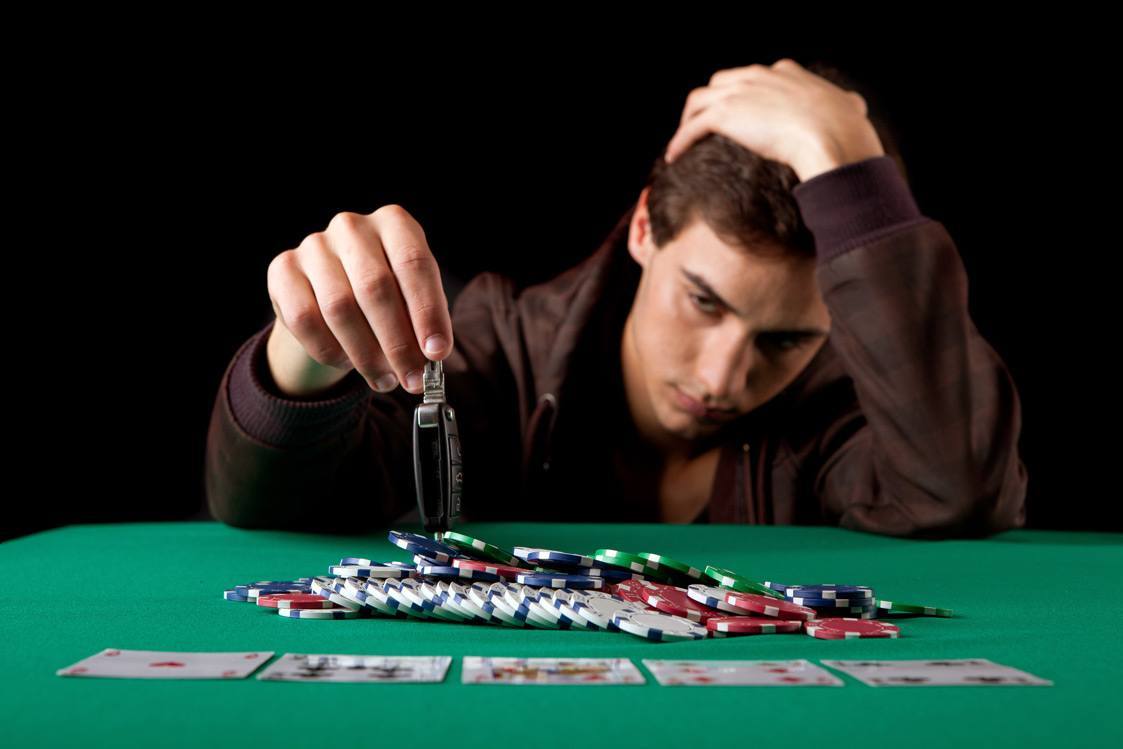Link Between Gambling And Depression
May 22, 2015
Addiction comes in a number of forms and some of the hardest addictions to recover from do not involve drugs or alcohol. Gambling addiction plagues many American families; people who suffer from it face problems at work, school and home. New research suggests that young men who gamble chronically often suffer from depression, Medical News Today reports.
Gambling and depression Most people, whether they have a problem with gambling or not, can relate to the idea that people get excited when they win, and feel disappointed when they lose. Scientists believe that the link between gambling addiction and antidepressant use lies in brain chemistry. Certain antidepressants cause changes in levels of a brain chemical called dopamine, with these changes having been linked to uninhibited behaviors.
Among high-risk online gamblers, the most predictive risk factors included moderate and severe anxiety and depression, reduced work hours, being influenced to gamble due to COVID-19, gambling under the influence of cannabis or alcohol and risky gambling motives tied to mental health concerns, including gambling because it helps with nervousness and depression, chasing gambling losses and seeking to earn income. Summary: If a young man is a chronic gambler, the chances are extremely high that he also suffers from depression, finds a study that is is the first to investigate the extent to which gambling.
Researchers at the University of Quebec at Montreal in Canada conducted the first study to observe how often gambling and depression occurs together in young men in their teens through to their 20s. Frédéric Dussault and colleagues used data from a study that started in 1984 and is still active. The study involved data from 878 participants that answered questions about gambling and depression when they were 17, 23 and 28 years old.

Growing more severe over time, 73% of the participants who reported having problems with gambling were also living with depression that appears to have developed with the chronic gambling, according to the article. The researchers found that the problems did not seem to diminish with age, but worsened.
“Gambling problems may be more a personal problem similar to an addiction: once acquired, they are difficult to get rid of,” said Dussault.
Link Between Gaming And Depression

The researchers determined that boys who showed signs of high impulsivity tend to become gamblers as they age. What’s more, another group of researchers at the University of Missouri say more than 1.6 million US college-age adults meet the criteria for problem gambling.
People seeking treatment for problem gambling should address their depression (when present). Treating both disorders at the same time will better ensure a successful recovery.
The findings were published in the Journal of Gambling Studies.
____________________________________________________________
Addiction and Recovery News Updates provided by Celebrate Hope Christian Rehab.
May 22, 2015
Addiction comes in a number of forms and some of the hardest addictions to recover from do not involve drugs or alcohol. Gambling addiction plagues many American families; people who suffer from it face problems at work, school and home. New research suggests that young men who gamble chronically often suffer from depression, Medical News Today reports.
Researchers at the University of Quebec at Montreal in Canada conducted the first study to observe how often gambling and depression occurs together in young men in their teens through to their 20s. Frédéric Dussault and colleagues used data from a study that started in 1984 and is still active. The study involved data from 878 participants that answered questions about gambling and depression when they were 17, 23 and 28 years old.
Link Between Gaming And Depression
Growing more severe over time, 73% of the participants who reported having problems with gambling were also living with depression that appears to have developed with the chronic gambling, according to the article. The researchers found that the problems did not seem to diminish with age, but worsened.
“Gambling problems may be more a personal problem similar to an addiction: once acquired, they are difficult to get rid of,” said Dussault.
The researchers determined that boys who showed signs of high impulsivity tend to become gamblers as they age. What’s more, another group of researchers at the University of Missouri say more than 1.6 million US college-age adults meet the criteria for problem gambling.
People seeking treatment for problem gambling should address their depression (when present). Treating both disorders at the same time will better ensure a successful recovery.
The findings were published in the Journal of Gambling Studies.
____________________________________________________________
Addiction and Recovery News Updates provided by Celebrate Hope Christian Rehab.